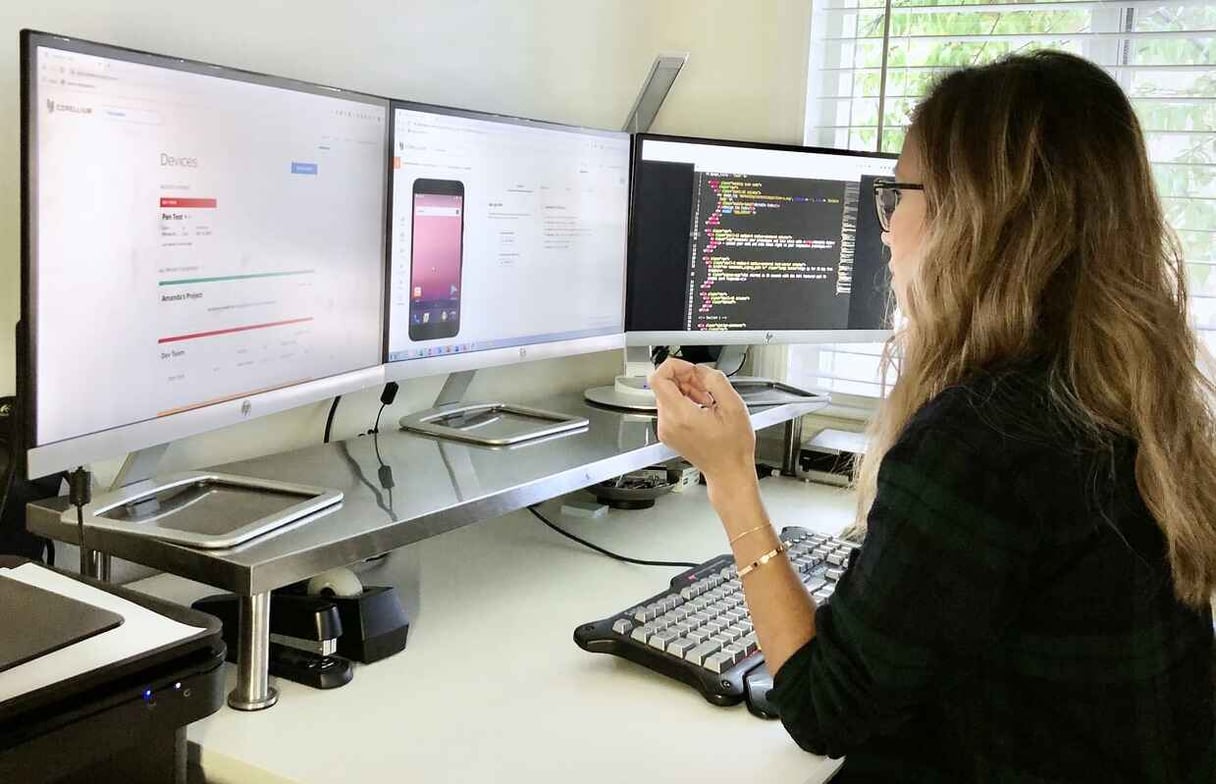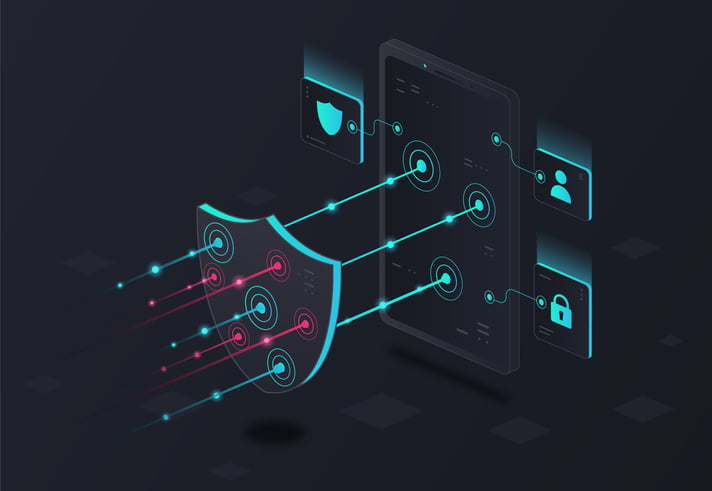3 Mobile App Security Testing Challenges And How to Solve Them in 2025

A significant 75% of mobile applications contain at least one security vulnerability, making them prime targets for cyberattacks. Secure mobile app development has never been more critical or more complicated. As developers race to ship new features and attackers find new ways to exploit them, traditional QA and security testing methods fall behind. Not only is this a development problem, but it also serves as a DevSecOps reality check.
Mobile app security testing needs to evolve to keep pace with fragmented devices, siloed testing teams, and the growing need for automation. Here's a breakdown of the top three mobile app testing challenges teams face today and how platforms like Corellium Viper change what’s possible.
Challenge 1: Sourcing Physical Devices with a Specific OS
The problem: With hundreds of iOS and Android versions in circulation, it's nearly impossible to maintain physical devices for every test scenario. Teams struggle to recreate real-world environments, especially for older OS versions or regional configurations.
Why it matters: Gaps in environment coverage mean bugs, security issues, or OS-specific vulnerabilities go undetected until production, or worse, until exploited.
The solution: Replace limited device labs and inadequate emulators with high-fidelity virtual devices. Corellium Viper allows you to spin up virtual models of iPhones and Android devices on-demand, including legacy OS versions, jailbroken/rooted configurations, and even beta releases.
Viper advantage: Viper isn't just an emulator. It's a true ARM-native virtualization platform that mirrors real-world device behavior. Security and QA teams can confidently test and follow mobile application security best practices, knowing the environment matches production conditions.
Challenge 2: QA Workflows Miss Critical Security Gaps
The problem: Security testing can get overlooked due to the speed of the QA pipeline. Traditional test cases focus on performance and stability but overlook risks like insecure data storage, hardcoded keys, or exposed SDK components.
The solution: Embed security into everyday QA workflows and integrate with CI/CD pipeline. Corellium supports static and dynamic testing techniques, including real-time inspection of file systems, TLS traffic, and app behavior under compromised conditions.
Viper advantage: With instant jailbreak/root access and advanced tooling like Frida, Burp, and IDA Pro integrations, Corellium helps DevSecOps teams proactively find and fix issues. Within the same platform, you can simulate MITM attacks, inspect encryption at rest, and validate SDK behavior.

Challenge 3: Limited Test Automation in Secure Environments
The problem: Highly-regulated sectors like finance, healthcare, and government need CI/CD pipelines that don’t compromise sensitive data. However, most mobile testing tools either lack automation support.
The solution: Use a platform purpose-built for automating mobile app security testing. Corellium Viper integrates seamlessly with popular DevOps tools via APIs and scripting interfaces. Run dynamic application security tests (DAST), simulate user flows, and generate audit reports—all from within your own cloud or on-prem deployment.
Viper advantage: Corellium gives you unmatched flexibility with MATRIX, letting you mix and match operating systems and devices to mirror physical device conditions. Test across iOS and Android in secure environments, scale efficiently, and stay in full control of your setup.
Why Viper Changes the Game for Mobile App Security Testing
- Corellium Viper empowers security, QA, and development teams to:
- Test across any OS version or device type without physical procurement.
- Frees up time to conduct deeper investigations of exploits and vulnerabilities.
- Automate dynamic testing in secure, compliant environments.
With support for iOS and Android, and seamless integration into your existing pipelines, Viper delivers a better way to test mobile apps.
Ready to tackle your most pressing mobile app testing challenges such as reducing testing time and catching more vulnerabilities? Book a meeting or start your free Viper trial today.
Keep reading

Mobile App Compliance: How Virtual Testing Speeds Regulatory Approval

Mobile App Security Checklist: A 30-Day Plan to Go From Zero to Secure

